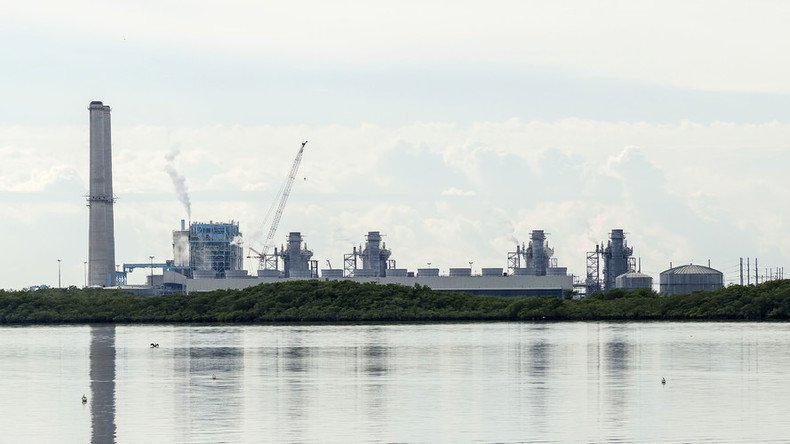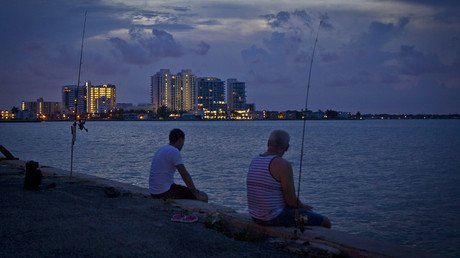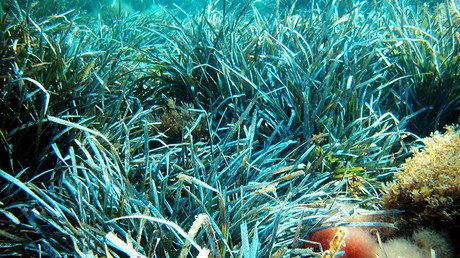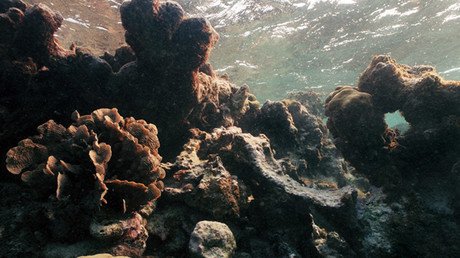Florida nuclear plant operator sued for polluting drinking water

Environmental groups have filed a lawsuit against Florida Power & Light Co., operator of the Turkey Point nuclear facility, saying that the company violated the Clean Water Act by discharging contaminants from the plant, impacting nearby drinking water.
The Southern Alliance for Clean Energy (SACE) and the Tropical Audubon Society filed a lawsuit in US District Court of Southern Florida, accusing Florida Power & Light (FPL), the largest utility in the state, of allowing a canal cooling system at Turkey Point Power Plant, located south of Miami, to pollute Biscayne Bay and the Biscayne Aquifer, a source of drinking water for more than 3 million people. Turkey Point has two nuclear reactors that are cooled by the canal system.
FPL has failed to "adequately control the temperature of the cooling water in the cooling canal system, by failing to control the nutrient levels in the system, and by failing to properly operate the so-called 'interceptor' ditch to prevent widespread contamination of the ground water by saline water and other pollutants, including radioactive tritium," the lawsuit says.
FPL responded, saying it has worked with government agencies and other experts to improve the canal system, said spokeswoman Alys Daly, according to the Palm Beach Post.
The lawsuit is "just another publicity stunt from an anti-utility group with a long history of spreading false information and pursuing wasteful legal action," Daly said.
Environmental groups said FPL's assurances that it is improving the situation at Turkey Point have fallen flat.
"We feel it is imperative that we pull the trigger on this Clean Water Act lawsuit as a vote of no confidence about what is happening in the state," said SACE executive director Stephen Smith, according to the Palm Beach Post.
Turkey Point has long leaked salty water into Biscayne Bay, with an average of about 600,000 pounds of salt leaving the canals each day, Smith said. A salty plume has moved west of the plant, discharging nitrogen, phosphorus, ammonia, and radioactive tritium along the way.
Smith called the canal system an "open industrial sewer like nothing else in the world" that FPL must address with more seriousness.
The lawsuit comes days after the state of Florida agreed to grant FPL a deferral over charging customers to cover costs for developing two new reactors at the site, and a month after FPL entered a consent order with the Florida Department of Environmental Protection, promising to take steps to clean the pollution over the next decade.
"We think that it does not solve the problem going forward, and we have real concerns about its ability to effectively remediate the problem that has been generated over the past 40 years," said Smith, according to Utility Dive.
The consent order issued by the state Department of Environmental Protection is just a rehash of an earlier consent order issued by Miami-Dade County, said Laura Reynolds, the former director of Tropical Audubon.
"Any time you have a cleanup scenario, you have to stop the source. They haven’t even proposed that," Reynolds said. “We are stepping in the regulators’ shoes and saying, ‘We can do better. We want to enforce the laws and protect the people and the environment.’ "
The lawsuit calls on FPL to stop discharging water into the canal, while it asks the court to demand FPL "remediate the pollutants that have migrated from the cooling canal system into Biscayne Bay and the ground water surrounding the cooling canal system."
In February, a Florida judge ordered FPL to clean the canal system in order to address the underground saltwater plume. The judge also criticized the state's management plan for the plant's pollution.
The state EPA consent order, agreed to in June, requires FPL to improve water quality around the plant over the next ten years. The plan includes installation of a recovery system to corral hypersalinated groundwater and keep it away from drinking water supplies.
FPL has insisted that water quality issues at Turkey Point do not affect public health or the safety of the plant.
















